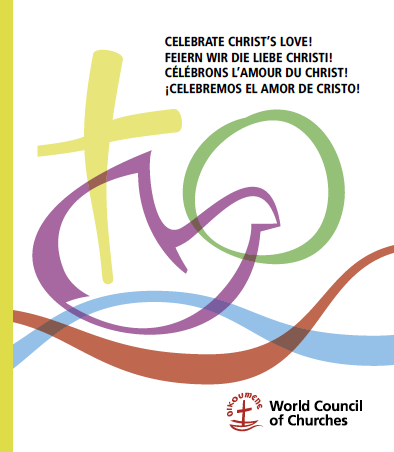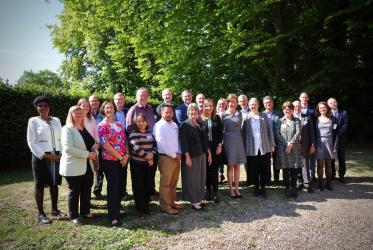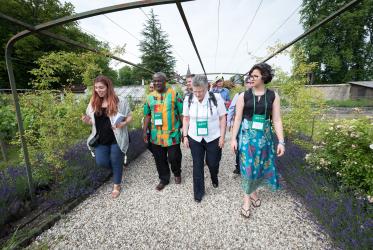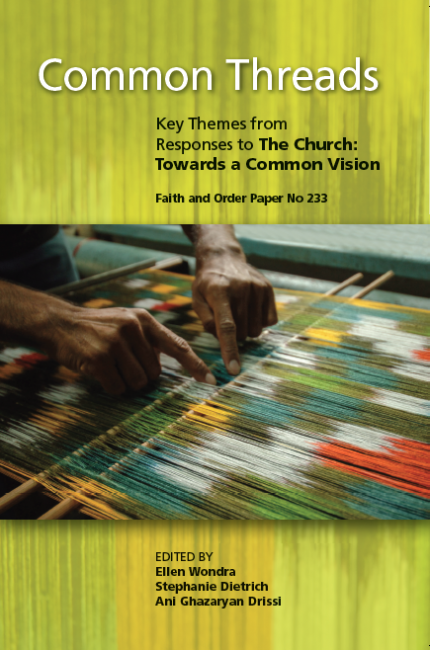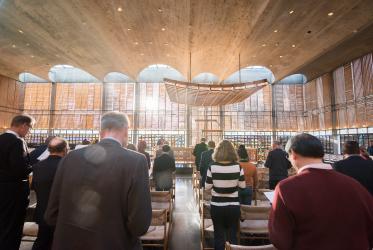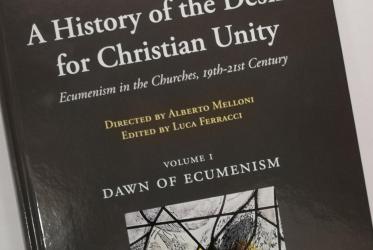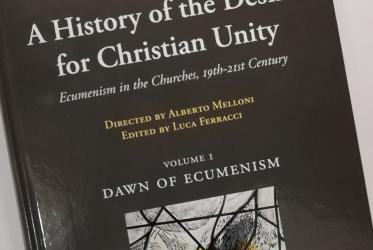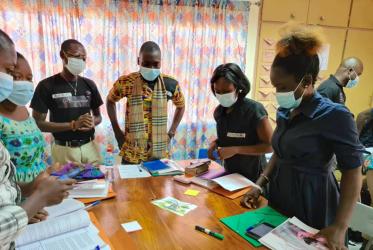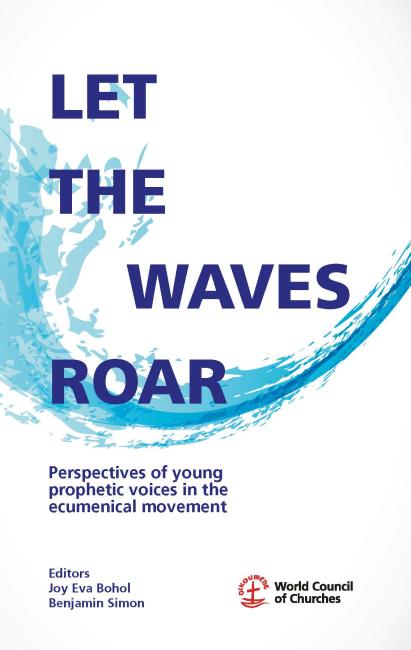Displaying 81 - 100 of 406
Now available: “The Journey of the WCC from Busan to Karlsruhe”
28 February 2022
Pilgrims on the Path of Peace
The Journey of the WCC from Busan to Karlsruhe (Unillustrated)
28 February 2022
Common Threads
Key Themes from Responses to The Church: Towards a Common Vision. Faith and Order Paper No 233
25 February 2022
WCC posts job openings for leadership staff
27 January 2022
Let the Waves Roar
Perspectives of Young Prophetic Voices in the Ecumenical Movement
19 December 2021

